
SUSREG TRACKER
Menu

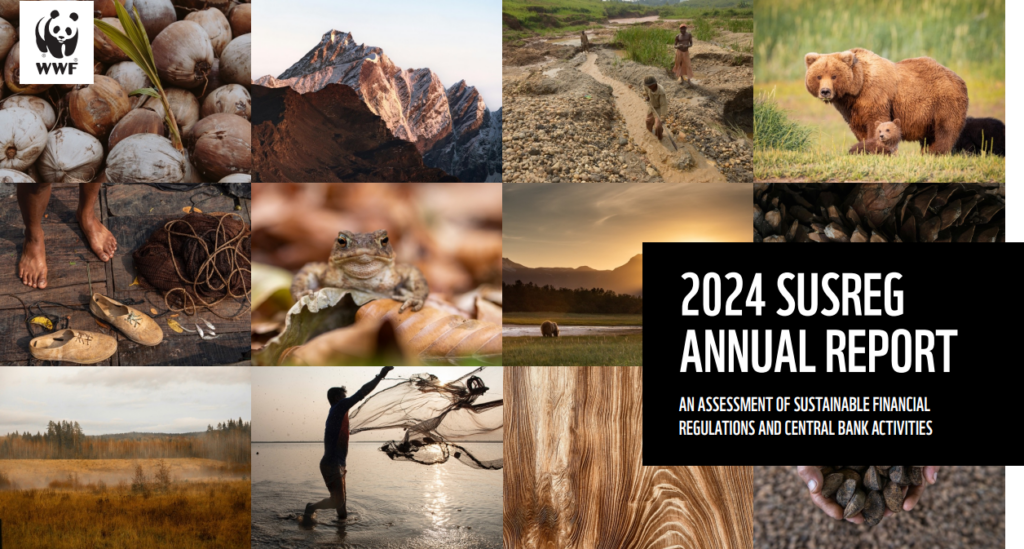
The report presents key insights from the 2024 SUSREG assessment, which evaluates advancements in sustainable financial regulations and central banking activities across 52 jurisdictions. The assessment reveals that banking and insurance supervisory authorities are making steady progress in managing financial risks related to climate change. However, nature-related risks—such as deforestation, land conversion, freshwater management, and marine life protection—continue to be overlooked.

The document summarizes the 2024 SUSREG annual report, highlighting key findings and recommendations on financial regulation and supervision, central banking activities, and the broader enabling environment for sustainable finance.
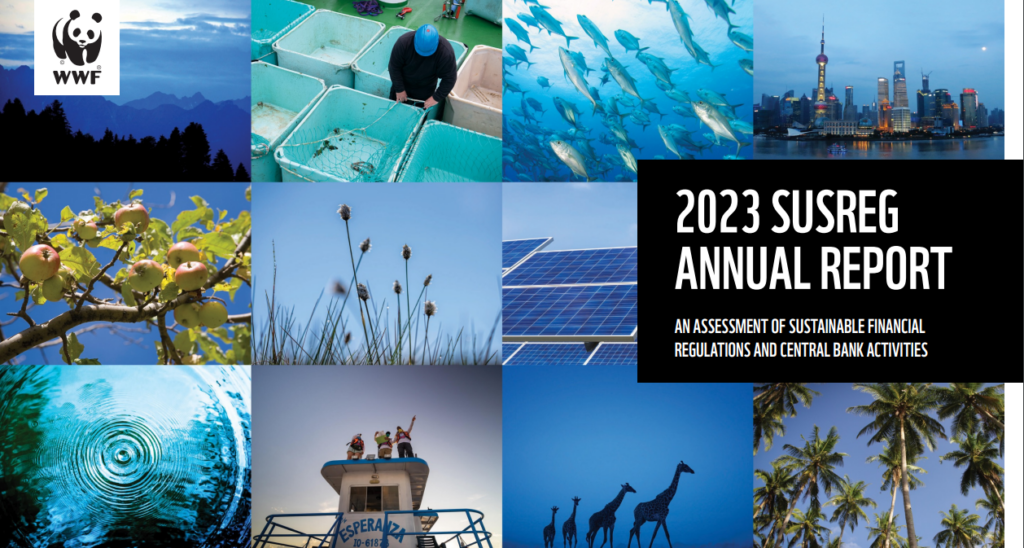
The report highlights key findings from the 2023 SUSREG assessment which evaluates progress on sustainable financial regulations and central bank activities in 47 jurisdictions. While significant progress has been made by several central banks and financial supervisors to implement sustainable regulatory and supervisory measures, key gaps persist, particularly in major and influential countries.

The document provides a summary of the 2023 SUSREG annual report, including key findings and recommendations on financial supervision, central banking activities, and enabling environment.
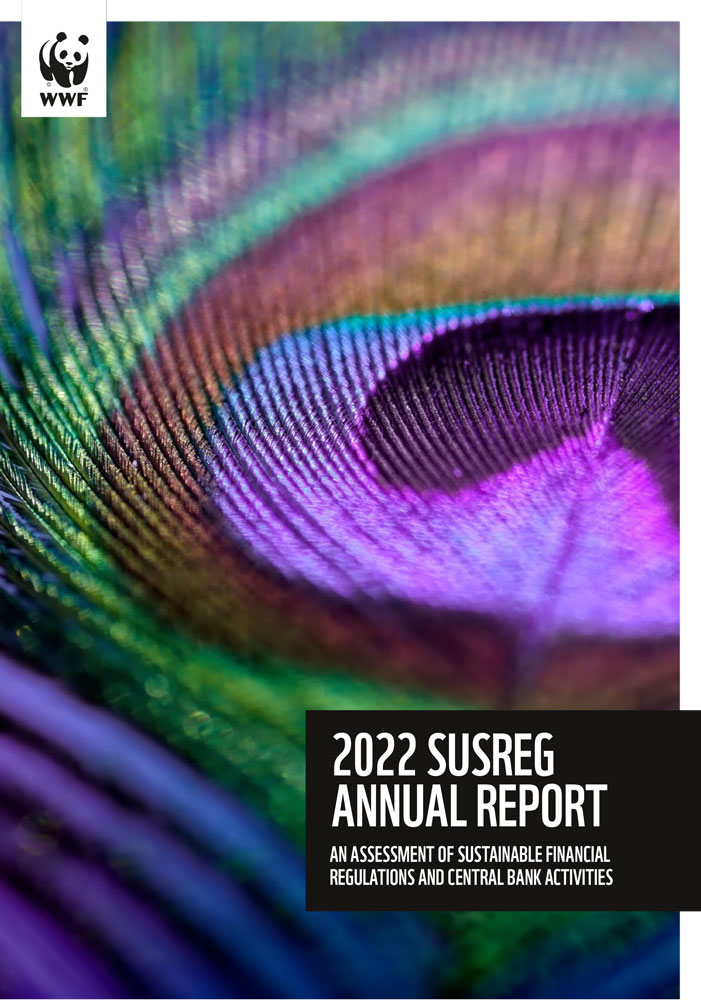
The report highlights key findings from 2022 SUSREG assessment which evaluates progress on sustainable financial regulations and central bank activities in 44 jurisdictions. Overall, the assessment finds that despite progress by a number of front-running countries (which majority are members of the NGFS), there are too many important gaps that hinder the transition to a nature positive, net zero economy.

The document provides a summary of the 2022 SUSREG annual report, including 13 recommendations for central banks and financial supervisors to consider in the short term, main progress, and main gaps and expected actions.
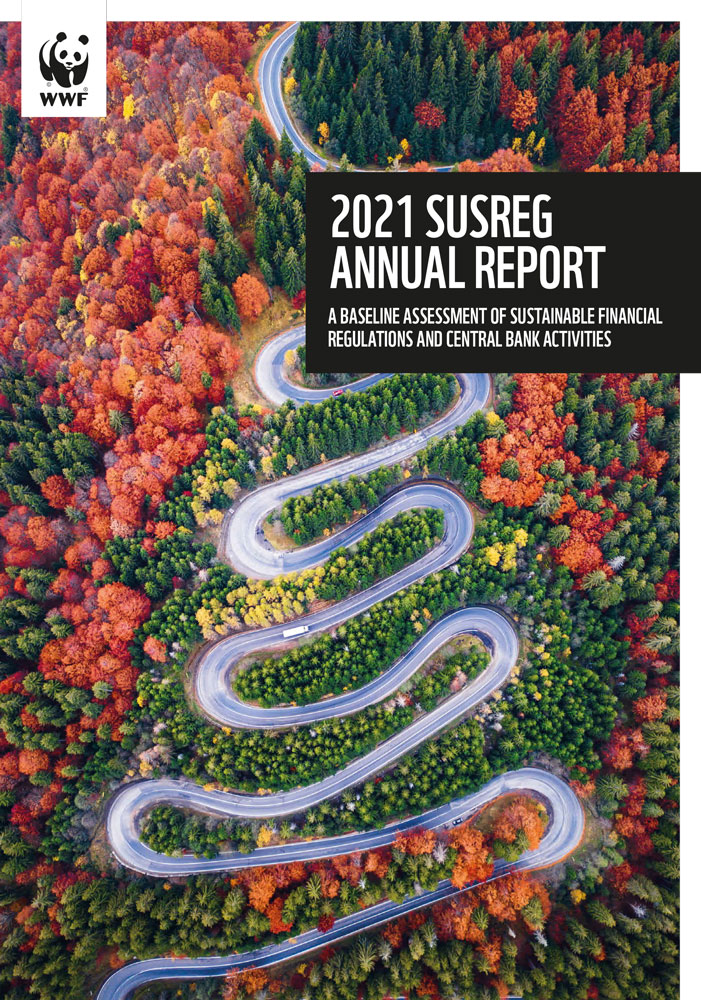
The report highlights key findings from 2021 SUSREG assessment which evaluates progress on sustainable financial regulations and central bank activities in 38 jurisdictions. While central banks and banking supervisors are making good progress on developing their strategy and rolling out concrete measures to address climate-related risks, other environmental and social risks are significantly less well covered.
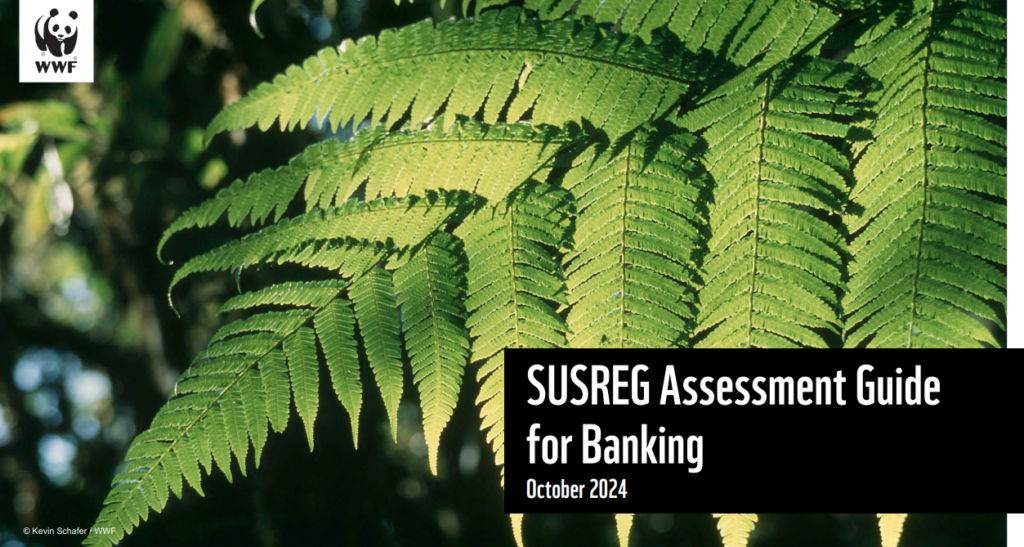
The assessment guide provides information and instructions for conducting SUSREG banking annual assessment. It includes the criteria for each of SUSREG indicators. It is used to ensure that the assessment is conducted in a consistent and reliable manner, and that the results are accurate and useful.
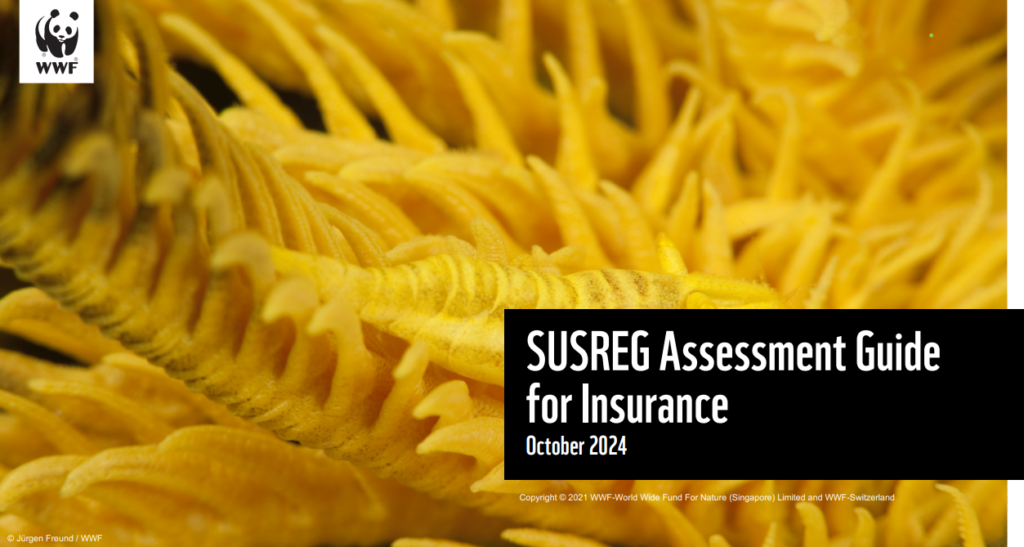
The assessment guide provides information and instructions for conducting SUSREG insurance annual assessment. It includes the criteria for each of SUSREG indicators. It is used to ensure that the assessment is conducted in a consistent and reliable manner, and that the results are accurate and useful.
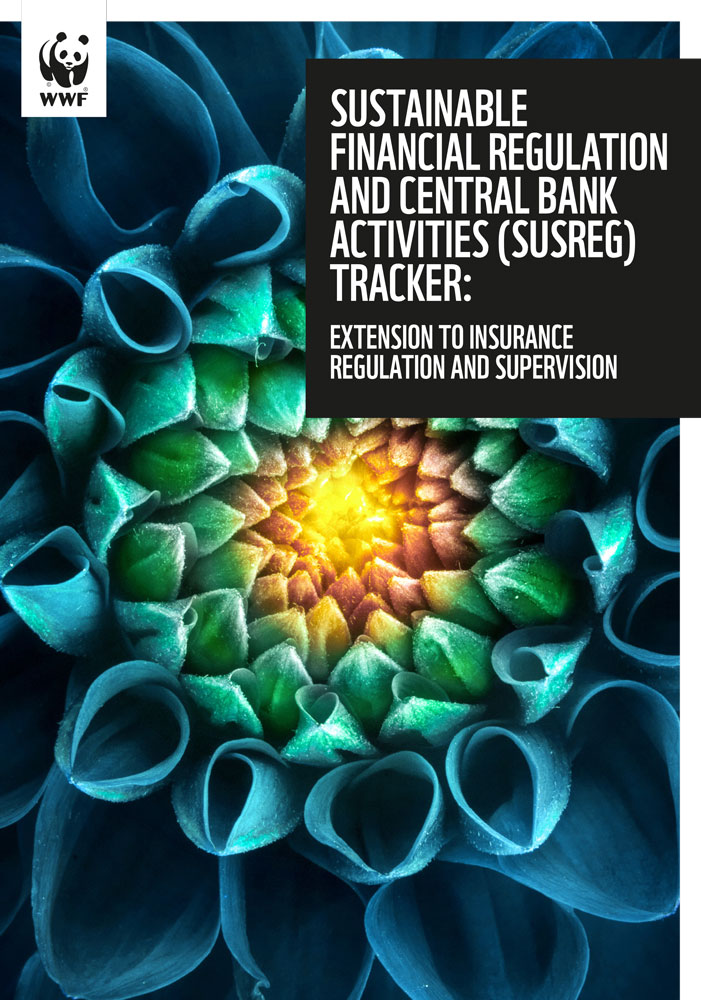
The report is an extension of WWF SUSREG framework which covers regulations pertaining to the insurance industry and will enable assessing the progress made by insurance regulators and supervisors.
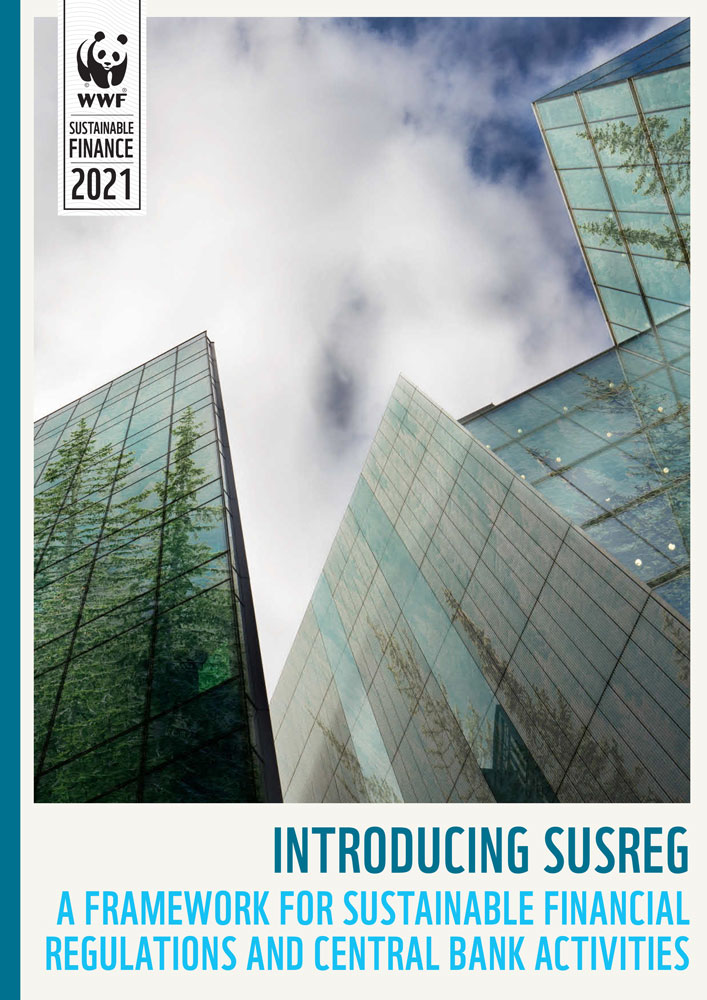
In 2021, WWF launches a new framework – Sustainable Financial Regulations and Central Bank Activities (SUSREG) – to support central banks, financial regulators and supervisors in enhancing the financial sector’s stability and resilience to climate-related and broader environmental and social risks, while enabling the mobilisation of capital for the transition to a low-carbon, resilient and sustainable economy.
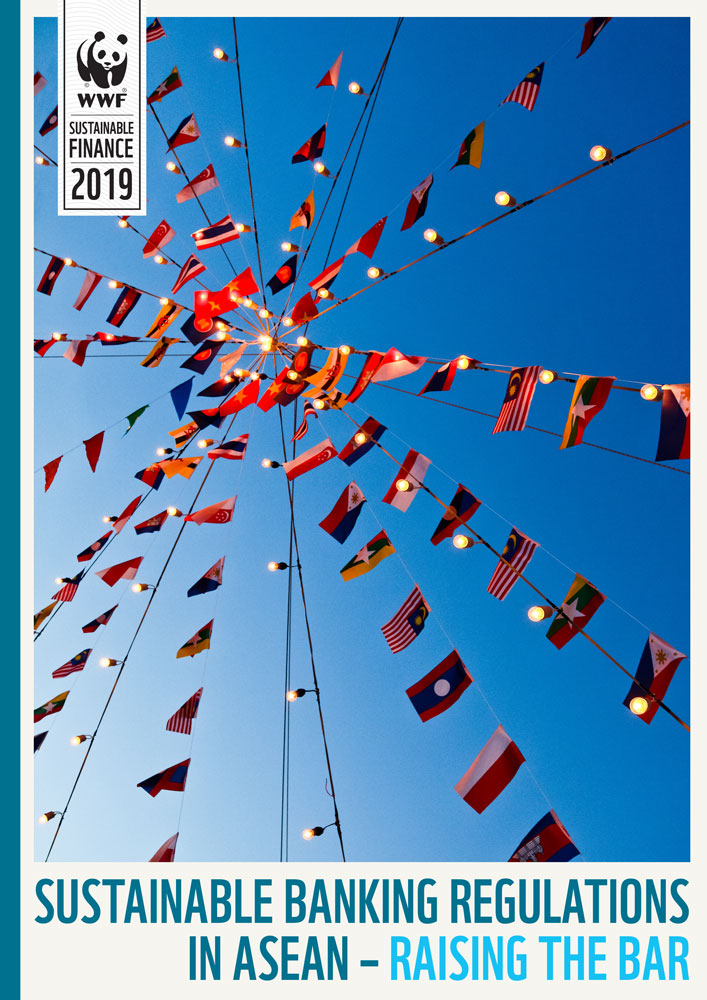
The report assesses regulations and guidelines issued by financial regulators or banking associations in Indonesia, Malaysia, Singapore, Thailand and Vietnam, based on a new framework reflecting WWF’s insights on what constitutes a robust foundation of regulatory practices.

©️ 1986 Panda Symbol WWF – World Wide Fund For Nature (formerly World Wildlife Fund) | ®️ “WWF” is a WWF Registered Trademark